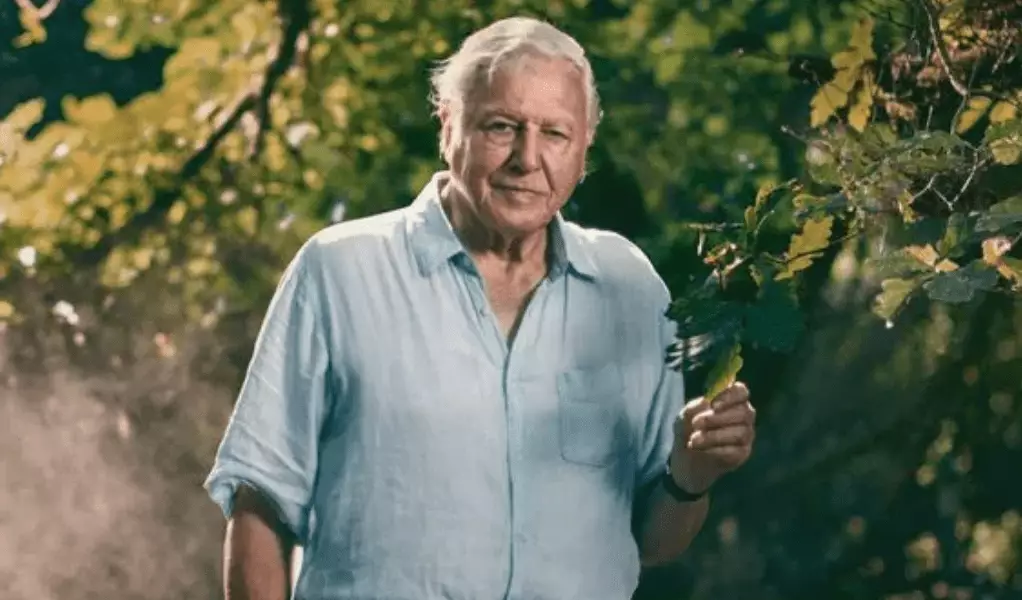David Attenborough, the esteemed broadcaster and naturalist, has expressed deep concern regarding the unauthorized use of his voice by artificial intelligence technology. Recently, he was alerted by the BBC that a cloned version of his voice had been created without his consent, generating a wave of ethical considerations concerning AI and its implications in the realm of creative expression. This scenario was triggered when a segment from his latest BBC documentary series, “Asia,” was used in a report where viewers were asked to discern between his authentic voice and an AI-generated replica. The results were startlingly similar, highlighting the sophistication of AI technology in mimicking human voices.
Attenborough’s discomfort is not merely about the unauthorized replication of his voice; it also involves the broader ramifications of identity theft in the digital age. As he articulated in his statement to the BBC, having dedicated his life to conveying truths about the natural world, he finds it deeply unsettling that his identity could be appropriated to convey messages he neither endorses nor agrees with. The implications for public figures, especially those who have built their careers on authenticity and credibility, are profound and cannot be understated.
The recent emergence of AI clones has become a widespread phenomenon, particularly on platforms like YouTube. Reports indicate that the cloned voice of Attenborough has been utilized in various news narratives unrelated to his work, such as political commentary related to the Ukraine-Russia conflict or Donald Trump. These instances raise critical issues about the ownership of voice and likeness—questions surrounding who has the right to replicate another individual’s voice and for what purposes.
In response to these events, the creator of the AI Attenborough clone provided a statement, attempting to clarify that there was no actual association with the renowned naturalist. This attempt, however, only serves to illuminate the murky waters of AI impersonation and the potential for audience confusion regarding the source of information. While the creator insists on the innocent nature of such cloning, the ethical dilemmas presented are significant. This situation is a clear manifestation of the potential misappropriation of identity that can occur with technological advancements.
The clash between voice cloning technologies and ethical standards is drawing attention in legislative circles. In the United States, the controversial practice of likeness cloning has prompted the introduction of the No Fakes Act, aimed at creating specific accountability for those who engage in cloning identifiable voices without permission. This legislation reflects a growing urgency to establish legal protections that safeguard the rights of individuals against unauthorized use of their likeness, especially in an era where AI capabilities are rapidly advancing.
The ongoing conversation surrounding AI voice cloning has gained traction in the context of labor disputes in the entertainment industry. As seen in recent writers’ and actors’ strikes, the fear that AI will replace human creativity has spurred significant apprehension regarding job security and artistic integrity. The case of Scarlett Johansson, where her voice was mimicked by an AI entity without her consent, underscores the serious nature of these concerns. Johansson’s eventual legal warning led to the swift removal of the AI-generated voice, illustrating how the intersection of technology and copyright law remains a contentious battleground.
As “Asia” continues to unfold on platforms such as BBC One and iPlayer, the increasing scrutiny surrounding AI voice cloning will likely ripple through industries beyond broadcasting. The technology, while innovative, introduces ethical dilemmas that society must address to ensure a respect for individual identity and creative contribution. Attenborough’s voice is not merely a tool for narration; it is an extension of his identity, intricately linked to decades of work advocating for the natural world.
The challenge ahead lies in balancing technological innovation with ethical responsibility and personal rights. As we venture further into a future increasingly governed by AI, the conversation surrounding the ownership of one’s voice will become even more crucial. Public figures, like Attenborough, serve as reminders of the human stories behind the voices and the need to ensure that these narratives are protected amid growing technological capabilities. The discussion is far from over; it is just beginning, and it demands our attention.

